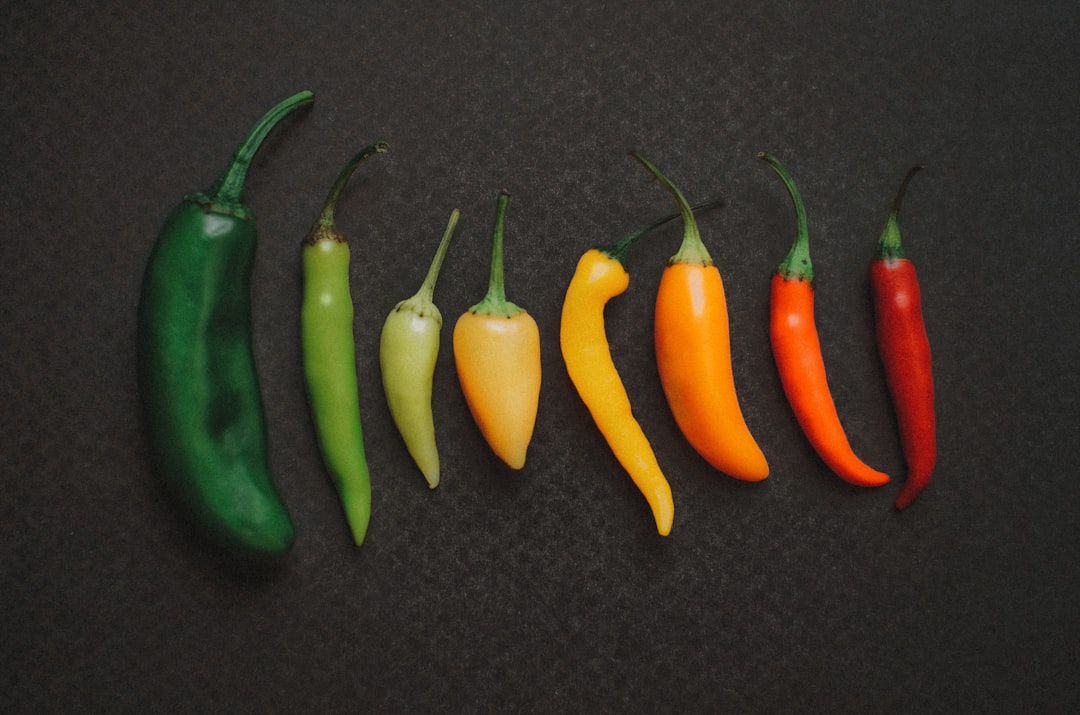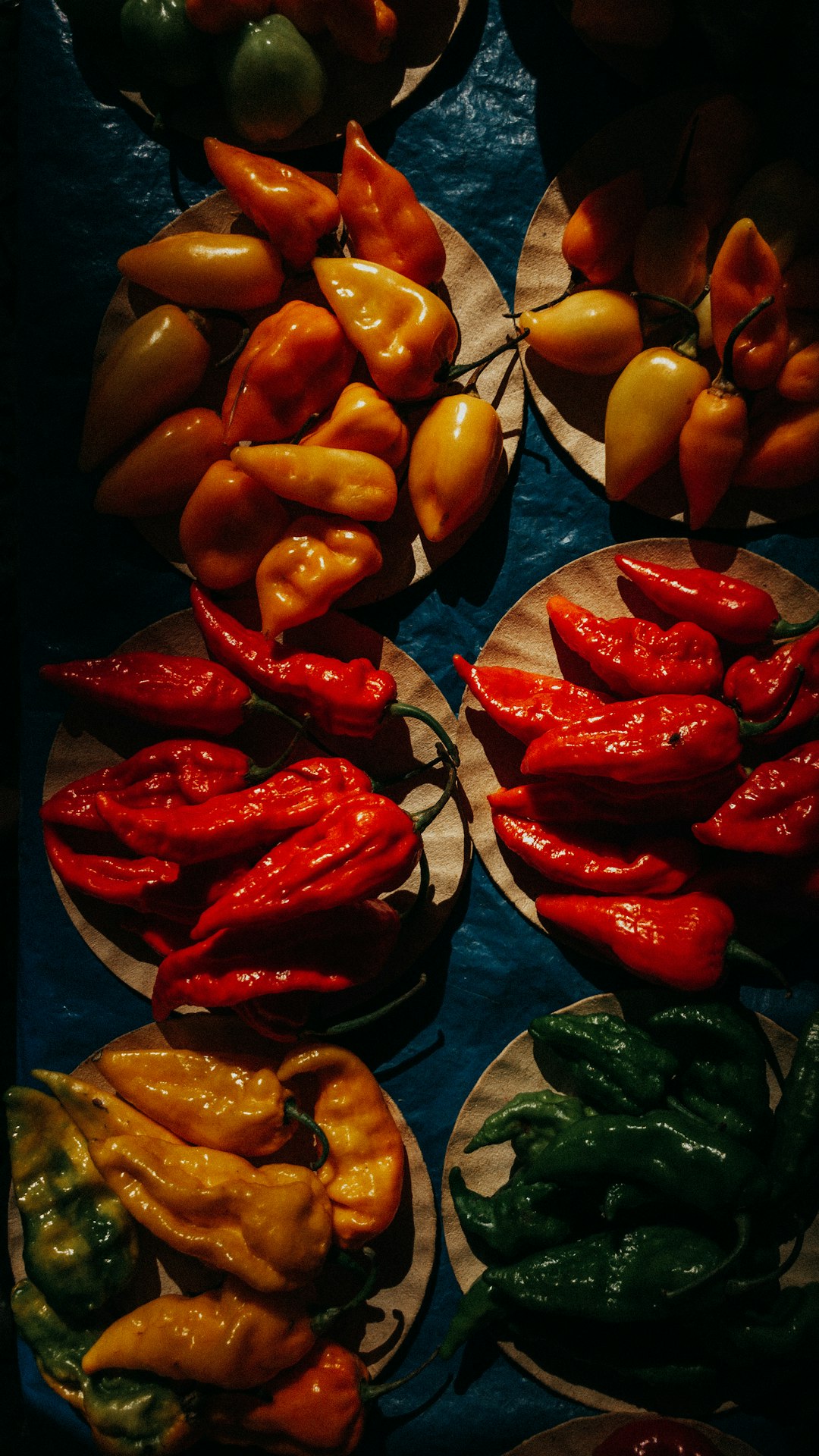More than just spicy
The healing benefits of peppers plus an AMAZING Morita pepper sauce recipe to slather on everything

This is how to grow jalapeño peppers…at the peak of ripeness, water the plant only enough so that it won’t die. As the plant is deprived of water, it becomes angry and the fruit turns spicy.
That angry spiciness of peppers is the plants natural defense mechanism to pests, fungi and disease - the compound responsible for this is known as capsaicin.
Capsaicin is responsible for the intense heat of the pepper and also the health benefit.
Nathan and I love spicy peppers. Curious about the nose-running, burning, uncomfortable yet enjoyable feeling I experience, I wanted to take a deeper look into these angry little fruits and I’m surprised by what I’ve found.
Turns out, there are some impressive health benefits along with the heat.
Nose issues
It is no secret that eating spicy peppers makes your nose run, and it’s good thing. Four studies concluded that capsaicin was more effective than steroid nasal medication in improving the overall nose function for people with non-allergic rhinitis.
Capsaicin is a common ingredient in nasal sprays, it can clear nasal passages, releave sinus headaches and migranes. Capsaicin thins mucous by relaxing muscles and blood vessels in the nasal passage, clearing everything out and promoting better breathing.
Clear sinuses and a sharper sense of smell is associated with a longer lifespan and better health overall. For more information about the importance of keeping your nasal passages clear and in working order, check out…
Your Nose knows
The humble nose, although it protrudes from the center of each face, is quite underestimated and often ignored. From face value, the nose helps you with balance, regulating breathing/ mental state, humidifies and cleans the air you breathe and regulates body temperature. Spiritually, it is known as a “bridge” that houses life f…
Anti cancer
Hot peppers have chemotherapeutic effects and can induce cancer cell death. In this inspiring video, Ed Currie shares his journey with having cancer, remaining cancer free since eating hot peppers everyday and developing the Carolina reaper pepper (hottest pepper ever!).
Capsaicin has been shown to be effective in treating prostate cancer by causing cancer cells to die, while leaving no impact on healthy cells.
Along with capsaicin, which has been observed to induce cancer death in lab studies and anecdotal reports, most peppers are very high in vitamin A & vitamin C, both anti-oxidants with strong anticarcinogenic and immune boosting effects.
Live a longer life
A chinese population study from 2015 linked spicy pepper consumption with a overall longer lifespan. Thousands of healthy people were enrolled into the study from 2004-2008 and followed over the years.
The results showed that people who consumed spicy food frequently were more likely to still be living, as compared to those who did not. Spicy food was also associated with decreased risk of certain diseases such as cancer, heart disease and respiratory diseases.

Detox
When peppers - especially jalapeño - run through the digestive tract, the capsaicin creates in inhospitable environment for parasites.
Parasites can be picked up by poor diet, traveling or eating under-cooked meat and are parasites flourish when plenty of sugars and processed foods are eaten. People with imbalanced gut flora or a weakened immune system are especially susceptible to parasites.
Fortunately, along with eating a balanced diet full of fiber and antioxidant rich foods, eating spicy peppers can create an environment to hot for parasites to handle.
Peppers ward of unwanted pests inside our bodies, as well as outside… sprinkle hot pepper dust in the garden to ward off cats and other small animals from scavenging around in your plants. A spray made with cayenne pepper can also be applied to plants to prevent or treat pest infestation.
Weight loss
Capsaicin increases body temperature and metabolism and acts as a gentle irritant to our digestive systems which stimulates blood flow to the affected area, resulting in better digestion. Cayenne pepper has been shown to be especially effective in stimulating metabolism and supporting weight loss.
When ingested, the peppers cause an increase in intra-cellular calcium levels which triggers the sympathetic nervous system (fight or flight) causing an increase in resting metabolic rate. Spicy peppers also mobilizes fat tissue and improves our bodies insulin response.
Cure stomach ulcers and digestive issues
Unlike popular opinion, spicy peppers do not increase acid production but inhibits acid secretion in the stomach. Peppers stimulate alkali mucus secretions and gastric mucosal blood flow which help create an environment conducive to healing in the stomach. In this way, peppers can aid in the prevention and healing of stomach ulcers and other gastro-intestinal disorders.
I just came across this fermented pepper sauce idea and plan on trying, since fermented foods already have wonderful health benefits for digestion and beyond - what a combo.

How our brains interpret spicy
There is no “heat” in peppers. The compound capsaicin is interpreted by our brains as heat by binding to the same pain receptors that react to burning, stinging, pinching or heat sensations. These receptors can be tricked when stimulated by capsaicin or another chemical, such as menthol.
So the pepper is not actually burning, but because the pain receptors have been tricked, the body produces the same physiological response to actual burning - including sweating, vasodialation, increased heart rate, etc.
The peppers make you sweat, which cools the body down. This is one of the reasons why the countries with the hottest climates also eat the spiciest foods.
If you are not used to spicy peppers it is perfectly possible to slowly increase your tolerance, start mild and working your way up.
dopamine euphoric feeling
The capsaisin in hot peppers triggers an opiate- like effect which generate a specific “high” similar to a runners high.
Since eating these peppers tricks the body into feeling a pain response, your body releases endorphins as a natural pain killing response. The neurotransmitter dopamine, responsible for feelings of reward and pleasure, is also released as the heat of the pepper wears off. The hotter the pepper, the greater the euphoric dopamine effect.
The capsaicin in spicy peppers produces anti-depressant like effects in rats, in lab studies. It is an agonist of the TRVP1 channel - a pain receptor pathway. This channel is directly linked with the limbic system, the center of our brain which processes emotion, fear and memory.
Hot Morita sauce recipe
This sauce is a banger. It is delicious on everything. Fries, chips, soups/stews, salads, added to ketchup, etc.
Morita peppers (Chile Morita) are smoked, dried, jalapeño pepper. Very much a staple in Mexican cooking - and now they are a staple in my cooking - although I don’t know very much about how they are traditionally used.
I’ve also tried this sauce with chipotle peppers instead of morita and it was equally delicous.
You will need…
15-20 Morita Peppers
4 Tbs oil (grapeseed, olive or coconut)
1 tsp salt
2 Tbs vinegar
how to…
Morita peppers usually come dried from the store. They will need to be re-hydrated for easy blending. Soak the peppers in water for 24 hours in the fridge or boil the peppers with some water on the stove top for about 15 minutes, remove from the heat, do NOT drain, and allow to slowly return to room temperature.
Once the peppers are soft, place them into a food processor with oil, salt, vinegar and a few spoonfuls of liquid from boiling/soaking the peppers. Blend until smooth. Add more liquid as needed. I usually add a good bit of the liquid because I like a runnier consistency.
Use the sauce for anything you want. If it’s too spicy for you on its own, add some applesauce, peach puree or some other fruit to add sweetness. I would also recommend adding cashew cream or sour cream to it.
Thanks for reading!
~Julia





Thank you for providing so much valuable information about peppers! I knew they were many benefits but I had no idea of the extensive amount of goodness they provide! The spicier, the better in our household! 🌶